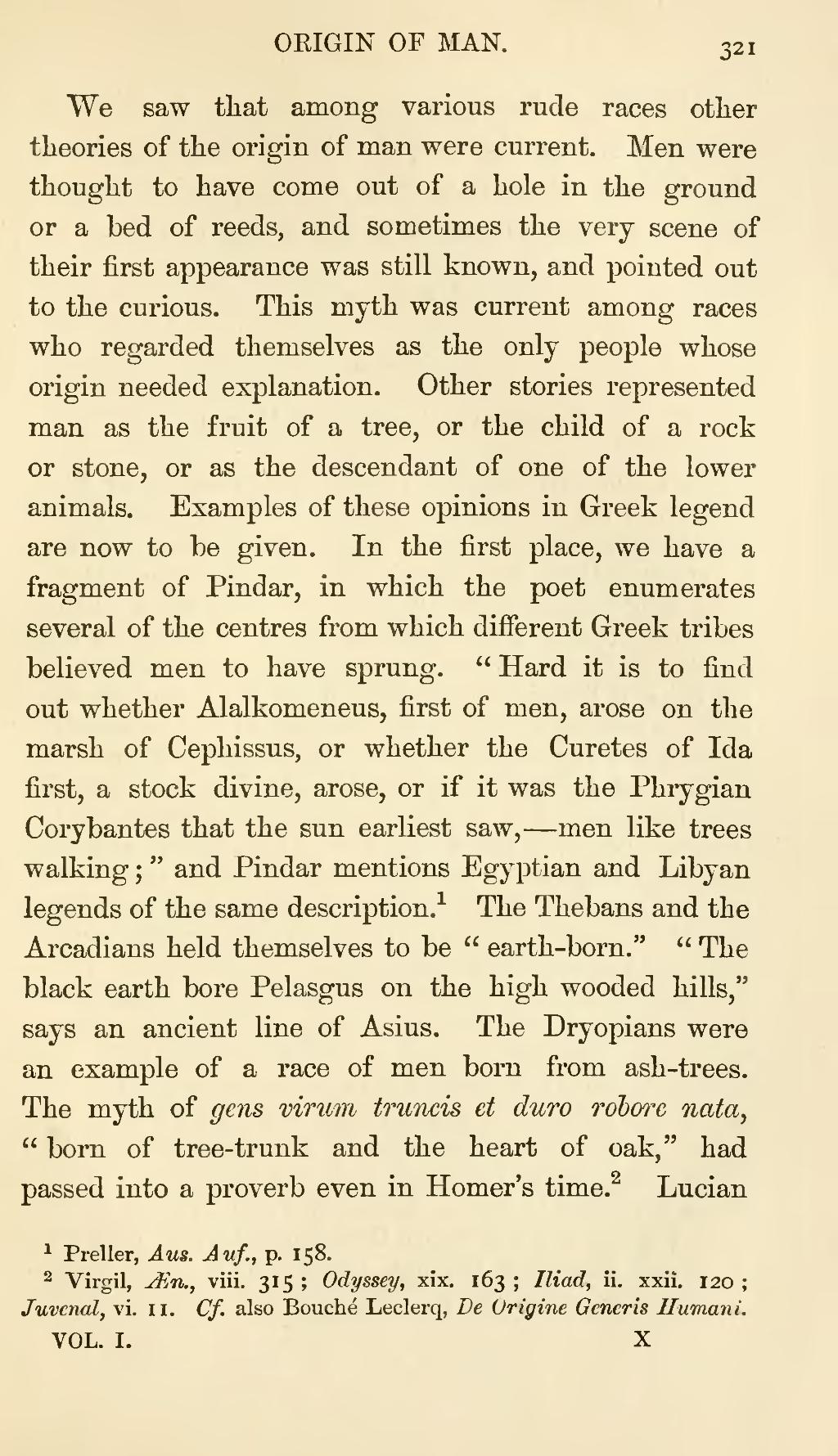We saw that among various rude races other theories of the origin of man were current. Men were thought to have come out of a hole in the ground or a bed of reeds, and sometimes the very scene of their first appearance was still known, and pointed out to the curious. This myth was current among races who regarded themselves as the only people whose origin needed explanation. Other stories represented man as the fruit of a tree, or the child of a rock or stone, or as the descendant of one of the lower animals. Examples of these opinions in Greek legend are now to be given. In the first place, we have a fragment of Pindar, in which the poet enumerates several of the centres from which different Greek tribes believed men to have sprung. "Hard it is to find out whether Alalkomeneus, first of men, arose on the marsh of Cephissus, or whether the Curetes of Ida first, a stock divine, arose, or if it was the Phrygian Corybantes that the sun earliest saw,—men like trees walking;" and Pindar mentions Egyptian and Libyan legends of the same description.[1] The Thebans and the Arcadians held themselves to be "earth-born." "The black earth bore Pelasgus on the high wooded hills," says an ancient line of Asius. The Dryopians were an example of a race of men born from ash-trees. The myth of gens virum truncis et duro robore nata, "born of tree-trunk and the heart of oak," had passed into a proverb even in Homer's time.[2] Lucian
- ↑ Preller, Aus. Auf., p. 158.
- ↑ Virgil, Æn., viii. 315; Odyssey, xix. 163; Iliad, ii. xxii. 120; Juvenal, vi. 11. Cf. also Bouché Leclerq, De Origine Generis Humani.
